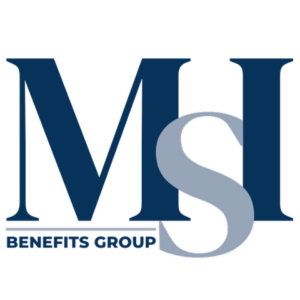As the workforce continues to evolve, employers must rethink their strategies to attract and retain top talent. With Generation Z, the demographic group born after Millennials, now entering the workforce in large numbers, businesses need to reconsider traditional employee benefits and communication methods. To succeed in this new environment, companies must get creative in how they structure and convey benefits to meet the specific needs and expectations of Gen Z employees.
Who Is Generation Z?
Generation Z, generally defined as those born between the late 1990s and early 2010s, comes into the workforce with unique perspectives and values that differ from prior generations. As digital natives, they prioritize technology, diversity, and flexibility. Their experiences with economic uncertainty, the global pandemic, and rapid technological advancements have shaped their outlook, making them value job security, work-life balance, and opportunities for personal and professional growth.
Customizing Benefits for Generation Z
To attract and retain talent from Generation Z, employers must focus on personalizing their benefits packages to meet these distinct priorities. Key areas to consider include:
Flexibility in Work
- Remote and Hybrid Options: Flexibility is key for Gen Z. Offering remote work or hybrid models can be a significant attraction.
- Flexible Schedules: Allowing employees to set their own hours or work outside the traditional 9-to-5 can accommodate different lifestyles, making the workplace more appealing.
Mental Health and Wellness
- Comprehensive Health Coverage: Including mental health support within health insurance plans is crucial for Gen Z, who place a strong emphasis on mental well-being.
- Wellness Programs: Offering initiatives like mindfulness workshops, mental health days, and wellness stipends shows that the employer cares about employees’ overall health.
Career Growth and Learning
- Continuous Learning: Gen Z values opportunities for growth, so offering courses, certifications, and upskilling programs is essential.
- Clear Advancement Paths: Providing structured opportunities for career progression and frequent feedback will keep these employees engaged and motivated.
Financial Stability
- Competitive Compensation: Ensuring salaries are in line with industry standards is key to attracting top talent.
- Retirement Planning: Despite their youth, Generation Z is already thinking ahead. Offering early retirement planning options is a valuable perk.
Communicating Benefits Effectively
How benefits are communicated is just as important as the benefits themselves. Gen Z values clear, concise, and transparent communication. To effectively reach them, consider the following:
- Digital Access: Using apps and online portals makes it easy for employees to access their benefits information anytime.
- Social Media and Videos: As social media is a part of their daily lives, leveraging it for informative and engaging content on employee benefits can be highly effective.
- Personalized Communication: Customizing how benefits are communicated—whether through emails, text messages, or online chats—can increase engagement and ensure employees feel connected.
Challenges and Considerations
While tailoring benefits for Generation Z, employers may encounter certain challenges:
- Cost: Developing and maintaining personalized benefits can be expensive. However, these costs are often offset by higher employee satisfaction and retention rates.
- Multigenerational Workforce: With different generations working together, it can be tricky to balance everyone’s needs. Adopting a flexible approach to benefits is a good way to accommodate this diversity.
The Takeaway
As Generation Z continues to make its mark in the workforce, businesses must adapt their approach to benefits and communication. By offering personalized packages and utilizing modern communication channels, employers can attract and retain this new generation of talent. These efforts not only appeal to Gen Z but also create a more supportive, flexible workplace culture that benefits employees across the board.

